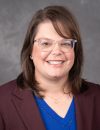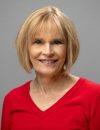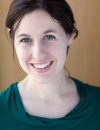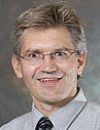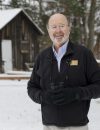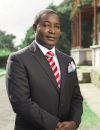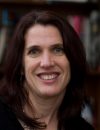Quoted: Habitat fragmentation is a major problem, said Dave O’Connor, a virologist at the University of Wisconsin at Madison. Human incursions into animal habitats — chopping down forests to build farms, venturing into parks to poach — bring us into increasing contact with animals and make us more likely to pick up their diseases.
UW In The News
-
Wisconsin’s absentee ballot crisis fueled by multiple failures
Quoted: Barry Burden, director of the Elections Research Center at the University of Wisconsin-Madison, said officials have limited time to make improvements for Wisconsin’s upcoming elections, including a special Congressional race next month and the statewide primary in August.
-
How a six-year-old Russian girl became YouTube’s most popular child star
Quoted: While other YouTube child performers tend to adopt the site’s popular blogging style, speaking directly to viewers as they unbox toys or shop in a mall, “Like Nastya” videos usually involve short, episodic plots. The storylines are simple enough for a three-year-old to follow. Heavy doses of sound effects, jump cuts and slapstick humour are like sugar for young audiences, said Heather Kirkorian, a professor at University of Wisconsin-Madison who studies cognitive development and media. “It’s like ‘The Three Stooges’,” she said. “That plays really well with preschoolers.”
-
Malaria drug treatment shows no benefits in hospital study
At the University of Wisconsin, Madison, “I think we’re all rather underwhelmed” at what’s been seen among the few patients there who’ve tried it, said Dr. Nasia Safdar, medical director of infection control and prevention.
-
In The Midst Of Uncertainty, Coronavirus Stimulus Payments Hit Wisconsinites’ Bank Accounts
Quoted: “I think one of the most important things for people to be cautious about is there’s now going to be a proliferation of scams,” said Michael Collins, director of the Center for Financial Security at the University of Wisconsin-Madison.
-
Trump’s coronavirus task force briefings have given the president what he loves most: a captive audience
“Every president wants to defend their legacy,” says Allison Prasch, assistant professor of rhetoric, politics and culture at the University of Wisconsin at Madison. “But the way that Trump is portraying himself rhetorically demonstrates a self-obsession in ways that I think are unprecedented
-
Protests to reopen the economy flare as some businesses face permanent closure
Quoted: “Every day it’s shut down it becomes more costly to reopen and recover, there’s no doubt about that,” said Ian Coxhead, an applied economics professor at the University of Wisconsin-Madison. “Depending on how long before we can begin to reopen the economy, there will be more people and more businesses added to the rolls of those who are not going to come back to the labor force of the business world.”
-
Vote by Mail in Wisconsin Helped a Liberal Candidate, Upending Old Theories
Qutoed: Barry Burden, a professor of political science at the University of Wisconsin-Madison who is among the academics who have produced studies that found no partisan advantage to mail voting, said the Times analysis of the Wisconsin data did not align with any previous studies from states such as Colorado and Utah, which transitioned to fully vote-by-mail systems in recent years.
-
Deep learning takes on tumours
Sharing bioimaging data sets and deep-learning models will also be a priority for the Center for Open Bioimage Analysis, an effort funded by the US government and led by Carpenter and Kevin Eliceiri, a bioengineer at the University of Wisconsin–Madison.
-
Wisconsin Farm Groups Say New Federal Aid Will Help, Not Solve COVID-19 Problems | Wisconsin Public Radio
But Paul Mitchell, director of the Renk Agribusiness Institute at the University of Wisconsin-Madison, said it won’t be easy to change the kinds of products processing facilities were built to create.
-
“They Should Have Done Something”: Broad Failures Fueled Wisconsin Ballot Crisis, Investigation Shows
Quoted: Barry Burden, director of the Elections Research Center at the University of Wisconsin-Madison, said officials have limited time to make improvements for Wisconsin’s upcoming elections, including a special Congressional race next month and the statewide primary in August.
-
Unemployment checks: Elizabeth Brandeis and Paul Raushenbush invented Great Depression insurance for jobless
E.B., as she was known to family and friends, wanted a career at the intersection of economics, labor and the law. She hoped to attend an elite East Coast law school, but those programs, including Harvard, where her father studied, didn’t accept women. With her father’s approval, she chose the University of Wisconsin, where the “Wisconsin Idea” — fusing academic research to solving social problems — was flourishing.
-
Morning Sickness During Pregnancy: What to Do and How to Cope
The good news: experts say there are practical steps you can take to help find relief, from home treatments to prescription medications. While it may be difficult to get rid of all symptoms, “this is a treatable condition and we can break the cycle and get people feeling better,” said Dr. Sumona Saha, M.D., an associate professor of medicine at the University of Wisconsin School of Medicine and Public Health.
-
Are Face Masks the New Condoms?
Quoted: David O’Connor, who studies viral disease at the University of Wisconsin-Madison, said: “If a substantial amount of transmission occurs before people feel sick, how do you stop that? By the time people feel sick and seek care, all the testing and isolation in the world would be too little, too late.”
-
Freshwater Mussels Are Dying—Which Is the Likeliest Culprit?
Quoted: Freshwater mussels are even finicky in sickness and death. Monitoring a mussel’s health is nearly impossible, said Tony Goldberg, a veterinary epidemiologist at the University of Wisconsin-Madison and a Strike Force member.
-
How Our Ancient Brains Are Coping in the Age of Digital Distraction
Quoted: In recent years, scientists have identified about two dozen genetic changes that might have helped make our brains not only bigger but incomparably capable. “It’s not just one quantum leap,” says University of Wisconsin-Madison paleoanthropologist John Hawks. “A lot of adaptations are at play, from metabolic regulation to neuron formation to timing of development.”
-
Are Face Masks The New Condoms?
Quoted: David O’Connor, who studies viral disease at the University of Wisconsin-Madison, said, “If a substantial amount of transmission occurs before people feel sick, how do you stop that? By the time people feel sick and seek care, all the testing and isolation in the world would be too little, too late.”
-
Earth is Hit by Solar Winds that are Hotter Than They Should be, and Here’s Why
Boldrev, together with his colleagues, physics professor Cary Forest and Jan Edgal from the University of Wisconsin-Madison, have explained this discrepancy in solar wind temperature. They sought the answer in the related field of plasma physics
-
Dairy Groups Look To Milk Supply Management Amid Coronavirus Pandemic
But Mark Stephenson, director of dairy policy analysis at the University of Wisconsin-Madison, said these are not ordinary circumstances.
-
There’s no roadmap for teaching online, so Washington’s teachers are creating their own
Quoted: Existing research on best practices in online learning will only get educators so far. “When you are being asked to implement online learning in the way our research suggests you should, but you are being asked to do that in a 12-day period, that’s nearly impossible,” said Annalee Good, co-director of the Wisconsin Evaluation Collaborative at the University of Wisconsin-Madison.
-
A Gloomy Prediction on How Much Poverty Could Rise
Quoted: “Poverty represents a level of deprivation that many middle- or upper-income Americans can’t even wrap their head around,” said Sarah Halpern-Meekin, a sociologist at the University of Wisconsin who has conducted extensive interviews with poor parents. “The first thing that come to mind is a mother I met who was trying to manage her son’s asthma while living in an apartment that had rodents, insects and mold no matter how much she cleaned. Rising poverty rates means more families living like that.”
-
Male lemurs may spread fruity ‘love potions’ with their tails
Quoted: Most pheromones are single chemicals, says Charles Snowdon, an emeritus psychologist at the University of Wisconsin, Madison, who was not involved with the work. “But what this paper is saying is that it’s a mixture of chemicals that seem to be more important,” he says.
-
State Party Chairs Discuss Options For May 12 Election
Quoted: Barry Burden, University of Wisconsin-Madison political science professor, said that likely gave some Democrats more of an incentive to vote even if the race was all but decided, according to previous Wisconsin Public Radio reporting.
-
An Exciting Development, CRISPR Lets UW-Madison Researchers Edit Genes
On a crisp, sunny February afternoon in Kris Saha’s lab in Madison, doctoral candidate in biomedical engineering Nicole Piscopo put a petri dish of cells underneath a high-powered microscope. The cells, which were gene-edited to include a gene from sea anemones, were glowing red.
-
Is the coronavirus connected to climate change
-
Coronavirus quarantine: Why you don’t have to be productive right now
Quoted: “We can practice relaxing as we are walking, cleaning our house, doing the laundry,” says neuroscientist Richard J. Davidson, founder of the Center for Healthy Minds at the University of Wisconsin-Madison. “We can also practice a little self-compassion at these times, recognizing that no one is perfect and not being too hard on ourselves for failing to accomplish something in the time we had originally planned, for example.”
-
Republicans tried to suppress the vote in Wisconsin. It backfired.
Quoted: It’s more likely that Democratic turnout benefited from the party’s presidential primary being on the ballot. And at a time when Americans are spending more time consuming news at home, the controversy over whether to hold the election may have actually wound up encouraging voters, said Barry Burden, director of the Elections Research Center at the University of Wisconsin-Madison.
-
Trump Has a Gut Feeling About What Covid-19 Means for 2020
Quoted: Barry Burden of the University of Wisconsin-Madison and Amber Wichowsky of Marquette, co-authored “Economic discontent as a mobilizer: unemployment and voter turnout.” Burden described by email the complexity of political mobilization during an economic crisis:“Historically, unemployed individuals have voted at much lower rates than working people,” Burden said, but when unemployment “becomes widespread enough to be perceived as a communal concern rather than an individual predicament” it raises turnout.
-
Despite Obstacles, Democratic Turnout Surged In Wisconsin Supreme Court Race
Quoted: Barry Burden, University of Wisconsin-Madison political science professor, said that likely gave some Democrats more of an incentive to vote even if the race was all but decided.
-
Despite Obstacles, Democratic Turnout Surged In Wisconsin Supreme Court Race
Quoted: Barry Burden, University of Wisconsin-Madison political science professor, said that likely gave some Democrats more of an incentive to vote even if the race was all but decided.
-
Screen Time Is Replacing Playtime — and That’s Changing Kids’ Brains
Quoted: Action games are associated with improvements on a pretty broad range of perceptual and cognitive skills,” says C. Shawn Green, a psychologist at the University of Wisconsin-Madison who specializes in cognitive neuroscience.
- Newer stories
- Page 60 of 140
- Older stories
Featured Experts
Noelle LoConte: Pancreatic Cancer Awareness Month
Pancreatic cancer is one of the most difficult cancers to prevent, diagnose or treat. Earlier this month, music legend Quincy… More
Kathleen Glass: Food safety
Food is an integral part of Thanksgiving. And who doesn't love leftovers? But after how long should you leave those… More
Cecelia Klingele: Body-worn cameras by police
Madison Police Chief Shon Barnes is requesting that the city fund widespread use of body cameras for officers in the… More
Jonathan Temte: The seasonal flu shot
Family medicine professor Jonathan Temte is available to discuss this year's updated seasonal flu shot and flu prevention and control. More
Stanley Temple: Fall phenology
The days have finally started getting cooler and we all know winter awaits. Stanley Temple, an expert on birds, wildlife, endangered… More
Alvin Thomas: Movember and Men's Health Month
You might see more facial hair this month as Movember goes into full effect, drawing awareness toward men's health. Alvin… More
Dominique Brossard: Vaccine hesitancy
With a new administration poised to take power in January, a change in policy regarding vaccines may also be on the way.… More

